Increasing equity in the national transplant system was the focus of remarks made recently by United Network for Organ Sharing (UNOS) CEO Brian Shepard and Board President-Elect Jerry McCauley, M.D. at a meeting organized by the National Academies of Sciences, Engineering and Medicine.

Shepard and McCauley both spoke before the Committee on A Fairer and More Equitable, Cost-Effective, and Transparent System of Donor Organ Procurement, Allocation, and Distribution about the ongoing work UNOS is doing to ensure every transplant candidate has equitable access to life-saving organs through policy making and data.
“UNOS is acutely attuned to issues of equity,” said Shepard, “Committees of experts from professional and patient communities review the anticipated impact on equity of new policies before they are approved, and once implemented, routinely monitor data to ensure that the policies have their intended effects and are not disadvantaging any candidates.”
McCauley, chief of nephrology at Jefferson University Hospitals in Philadelphia, spoke in particular about the efforts of Organ Procurement and Transplantation Network’s Minority Affairs Committee (MAC), and their charge to monitor, identify, and help correct racial and ethnic disparities in transplantation. UNOS is the mission-driven nonprofit organization that serves as the OPTN under federal contract.
“As [organ allocation] policies are being developed, those policies come to the [Minority Affairs Committee] and we get to look at whether or not there are obvious disparities,” McCauley said. “These things are being vetted before the policy is rolled out.”
He also referenced how the committee has championed changes to kidney allocation policy in recent years, leading to policies that, once on the waiting list, have made access for Black kidney transplant candidates equitable.
A wide variety of this data is publicly available on the UNOS and OPTN websites. Additionally, UNOS researchers developed and launched the Equity in Access to Transplant Dashboard, which allows users to explore how different factors impact waitlist candidates. According to the dashboard, where a patient is listed has the highest impact on access.
In his remarks, Shepard went on to stress the need to expand equitable access, and emphasized UNOS’ commitment to ongoing improvement as the high-performing, mission-driven non-profit serving as the nation’s transplant system.
“The ultimate form of equity that is UNOS’ goal and the goal of the entire organ donation and transplant community, is to provide a transplant for every single patient that needs one,” he said. “We are looking for continuous improvement of what is already the world’s best donation and transplant system.”
Learn more about our ongoing equity work:
Workgroup to examine use of race-based adjustment to kidney calculation
Data dashboard monitors equity in access to transplant
The road to racial equity in kidney transplantation
New kidney and pancreas allocation system will increase equity
###
About United Network for Organ Sharing
United Network for Organ Sharing (UNOS) is the mission-driven nonprofit serving as the nation’s transplant system under contract with the federal government. We lead the network of transplant hospitals, organ procurement organizations, and thousands of volunteers who are dedicated to honoring the gifts of life entrusted to us and to making lifesaving transplants possible for patients in need. Working together, we leverage data and advances in science and technology to continuously strengthen the system, increase the number of organs recovered and the number of transplants performed, and ensure patients across the nation have equitable access to transplant.
Contact Details
Anne Paschke
+1 804-782-4730
Company Website





